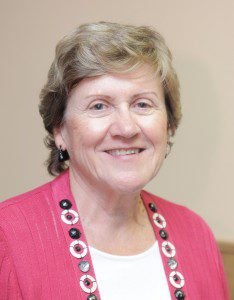Fickle February blasted us with several wintry weather days then teased us with a few touch of spring days. We survived. In March, we can look forward to longer daylight hours when clocks are set ahead on the 12th and we can then rejoice in the official start of Spring on the 20th. Hopefully, Mother Nature will recognize and cooperate with our calendar schedules. As we spring forward, this will be an important and busy year in city government.
Two deep subjects of importance were recently discussed at the Natural Resources Committee (NRC) meeting: well contamination and the Barnes Aquifer. After a few weather related postponements, the NRC committee finally met on February 28, 2017. One of the items on the agenda was a review of the Water Resource Protection District Zoning Ordinance. The current Ordinance can be found at http://www.cityofwestfield.org/DocumentCenter/View/892. The committee intends to review the language in the ordinance to determine what or if any of it needs to be amended, removed, or added. The NRC committee proposes to determine if this ordinance, as written, satisfactorily fulfills its stated intention. Is it strong enough or is it too weak? If not, what can be done to improve it? What must be done to improve it? Does it in fact need to be strengthened in order to insure that it adequately protects the city aquifers, our drinking water supply? In light of recent issues with the contamination and shutdown of wells 7 and 8 on the Northside and the real potential of contamination of the Barnes Aquifer from other sources, it seemed prudent to take a hard look at the current ordinance. Residents’ questions need answers and concerns need to be addressed. Are we doing enough to protect this water supply?
In March of 1989 an engineer, Michael Frimpter, working with the U.S, Geological Survey, addressed the Barnes Aquifer Protection Advisory Committee (BAPAC) regarding threats of pollution to underground sources of water. Two years before his talk, two wells near Barnes Airport were found to be contaminated with traces of trichloroethane. In light of that contamination he recommended that, “Communities need to tighten zoning bylaws to limit industrial development on or near aquifer lands to prevent possible contamination.” In 2008, the Pioneer Valley Planning Commission (PVPC) in a letter to Secretary Ian Bowles of the Executive Office of Energy and Environmental Affairs (EOEA) regarding proposed projects and improvements at Barnes Airport, “…urged that extreme care be taken to insure that adequate groundwater protection measures have been employed given that the Barnes Aquifer is a public water source…” The airport sits over a good portion of the Barnes Aquifer. These are but a few of the concerns, cautions and recommendations that have been voiced over the years. BAPAC, a coalition of four Massachusetts communities — Easthampton, Holyoke, Southampton and Westfield and the Pioneer Valley Planning Commission, which works to protect, educate and bring awareness to residents about the aquifer, an important regional groundwater resource, believes we can do more. Do we listen to this advice? Have we done enough? Can we do better? Personally, I think there is much room for improvement.
The ordinance was amended in early 2015 after much back and forth discussion but some felt that after all was said and done, the final iteration was not strong enough. So the discussions have begun anew. The meeting on February 28 got the ball rolling. This issue will remain in committee and discussions will continue going forward. We need all hands on deck, working cooperatively to fine tune this ordinance. Residents are encouraged to attend and follow the progress at future NRC meetings. Please feel free to reach out to committee members, Councilors Babinski, O’Connell and Figy.
On a related agenda item, the committee reviewed comments and data on the well contamination issues which were brought to the attention of the city council on February 2, 2017, by resident Kristen Mello. Kristen has a Bachelor of Science degree in Chemistry and a Masters in Analytical Chemistry. Much of the information that she has provided will support the efforts of Dave Billips at the DPW and the Water Resource Department. The NRC committee wishes to thank Ms. Mello, who was present at the NRC meeting, for providing information from her research and for taking on the huge task of sorting through a mountain of data. We appreciate her input and hope she will continue to work with committee and the city departments. The committee also thanks David Billips, Joe Mitchell and City Councilors Onyski and Allie along with several city residents for sharing their perspective on the water situation at the February 28 meeting.
We need to keep an open mind, continue the dialog, work cooperatively and consider all data that can help us make the right decisions to protect our water tresources. Our ordinances and special permit conditions have to be more than just words on paper. As I said once before, as a city we need to recognize and embrace the importance of our shared role in protecting this aquifer. We need to implement measures that will place a high priority on protecting the aquifer and the people who depend on it for their water supply. Residents on city water and private wells have a right to clean water and deserve to have their water supply protected. We need to do whatever it takes to make that a reality. Stay tuned, we need you involved in this effort.
For your information, I will be holding Ward 1 office hours on Monday, March 13, 2017, in the Barnes Regional Airport Conference Room located at 100 Airport Road from 11:00 am to 12:30 pm.
As always, I encourage you to reach out to me with your questions or concerns: [email protected] or 413-568-8562
Sincerely,
Mary Ann Babinski, Ward 1 City Councilor


